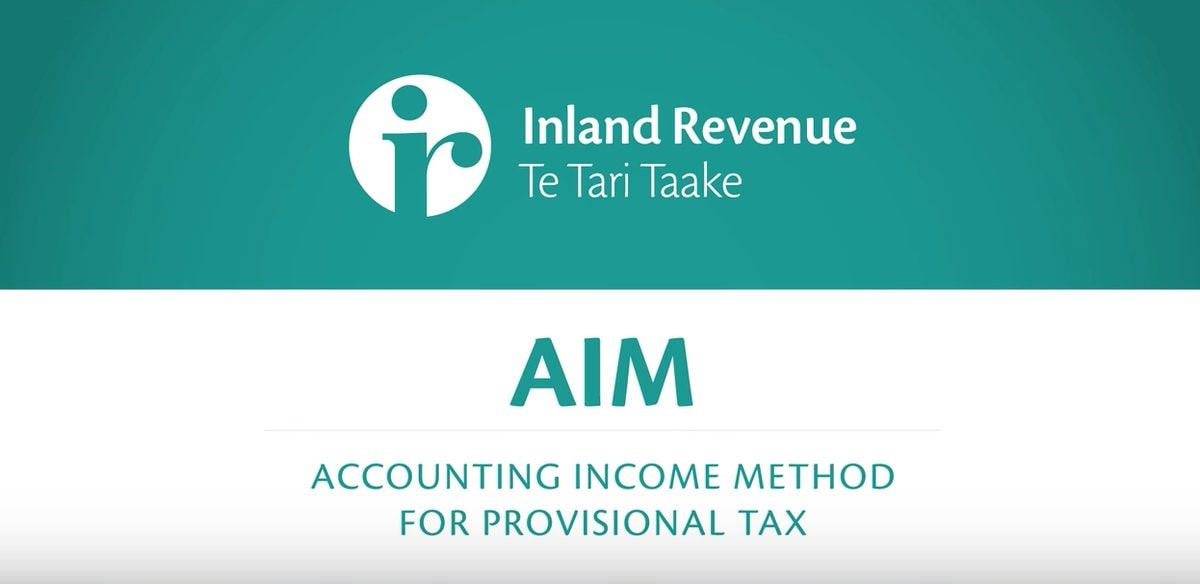AIM (Accounting Income Method)
From 1 April 2018, there is a new way of paying provisional tax called the Accounting Income Method (AIM)
In a nutshell, AIM uses new functionality included in approved accounting software to work out payments. The IRD will receive a miniature set of accounts as often as every 2 months. You will only pay provisional taxes when you make a profit and get a refund straightaway if your business was making a loss.
As long as you make your payments in full and on time there is no exposure to Use-Of-Money-Interest. You cannot however use tax pooling to manage your cash flow for provisional tax payments.
Criteria for Using AIM
Only available to companies and sole traders.
Turnover must be under $5 million per annum
Do I need to use AIM?
No. You can still use the Standard and the Estimation methods currently in use now. (There have been significant changes to the standard method to make it more attractive).
If you choose to go with this method, you need to file a Statement of Activity at the end of May 2018, with the 1st AIM payment due on the 28 June. Once you are in, you cannot opt out for another year. If you don’t start in May, you will have to wait another 12 months.
To AIM or Not to AIM
IRD and the software providers (Xero, MYOB and Reckon) have actively promoting AIM, so it is easy to get caught up.
To Aim
The provisional tax payments will be more accurate than basing on last years performance.
- You will only pay provisional tax if your business makes a profit. Avoids cash flow problems. Suits growing business, start-ups, irregular and seasonal income
- As long as you pay provisional tax on time and in full, there is no exposure to the dreaded Use-Of-Money-Interest (UOMI).
Not to Aim
- You have more reporting to do throughout the year. Adjustments for closing stock, private expenditure, non-deductibles must be made for these activity statements.
- Set up and ongoing costs. Aim requires a bit more work than initially envisaged, particularly from the taxpayer.
- New changes to the UOMI has reduced exposure to UOMI.
- If you are on our quarterly or bi-monthly reporting package, we will be tracking your profit regularly and ensuring that your tax payments accurately reflect your financial performance
- AIM could mean a lot of work and any discrepancies may have a pretty significant impact.


